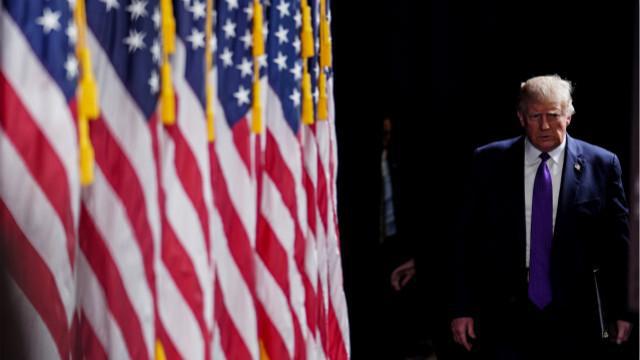Trump Implies New Chip Levies to Come Soon after Semiconductors Exempted fro...
TMTPOST -- U.S. President Donald Trump implied on Monday new levies on chips will hit trading partners right after his government granted products including semiconductors from its sweeping reciprocal tariffs.

Credit:Yicai Global
Trump indicated he would soon impose separate tariffs on semiconductors and pharmaceuticals at White House. “The higher the tariff, the faster they come in,” the president told reporters, citing import taxes he has imposed on steel, aluminum and cars. Trump blasted U.S. heavy dependance on imported pharmaceuticals. He claimed so many vital medicines were imported that American companies “don’t make our own drugs anymore.”
Federal notices released online later Monday said the Trump administration had opened national security investigations into imports of chips and pharmaceuticals. The probes will also cover the machinery used to make semiconductors, products that contain chips and pharmaceutical ingredients.
The investigations could lead to new tariffs on semiconductors and pharmaceuticals under Section 232 of the Trade Expansion Act of 1962, which allows the president to impose tariffs to protect U.S. national security.
White House deputy press secretary Kush Desai the same day confirmed the move in a statement, and stated Trump “has long been clear about the importance of reshoring manufacturing that is critical to our country’s national and economic security.”
The investigations came a day after Trump and U.S. Commerce Secretary Howard Lutnick indicated the recent exemptions from semiconductors and other imported products from reciprocal tariffs are temporary.
“NOBODY is getting ‘off the hook’ for the unfair Trade Balances, and Non Monetary Tariff Barriers, that other Countries have used against us, especially not China which, by far, treats us the worst!” Trump wrote in a post on his social media Truth Social.
Trump also posted that U.S. government officials were "taking a look at Semiconductors and the WHOLE ELECTRONICS SUPPLY CHAIN in the upcoming National Security Tariff Investigations." The president on Sunday spoke with reporters officials would discuss tariffs on products like iPhones and tablets with companies "because you have to show a certain flexibility, nobody should be so rigid."
Lutnick on Sunday indicated separate tariffs for electronics are “coming soon.” “They’re exempt from the reciprocal tariffs, but they’re included in the semiconductor tariffs, which are coming in probably a month or two,” Lutnick said in an ABC News interview. “So this is not like a permanent sort of exemption. (Trump’s) just clarifying that these are not available to be negotiated away by countries”
Trump’s remarks triggered more tariff uncertainty as the U.S. Customs and Border Protection (CBP) announced in an updated guidance late Friday that the government has exempted smartphones, computers and other electronic products from its reciprocal tariffs.The document stated that the exemption applies to electronic products entering the United States after April 5, and reciprocal tariffs already paid can be refunded upon request.
The White House said on Saturday the exemptions were made because Trump wants to ensure that companies have time to move production to the U.S. Trump “has made it clear America cannot rely on China to manufacture critical technologies such as semiconductors, chips, smartphones, and laptops”, said White House deputy press secretary Kush Desai in a statement.
The 20 product categories listed in the CBP guidelines are apparently exempt from the 125% tariff imposed by Trump on Chinese imports and the 10 aseline tariff on imports from other countries.
The exemptions were deemed as “a massive U-Turn in tariff policy” by the Kobeissi Letter, a financial newsletter on social media X. Bloomberg believed that it could potentially cushion consumers from sticker shock while benefiting electronics giants including Apple Inc. and Samsung Electronics Co.